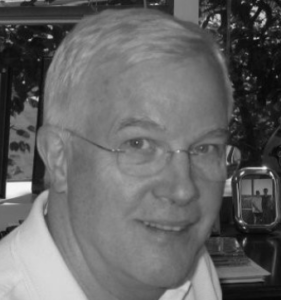What contraindicates drug treatment in cardiorenal syndrome if the only drugs that can reverse the condition—or at least—extend survival, might cause further kidney injury?
This can be quite difficult for some laypeople to wrap their heads around, if they’ve done some “homework” by reading medical journals.
They may have learned, from those journals, that certain drugs like aldosterone antagonists, ARBs and nesiritide are the standard treatments to help a patient pull out of worsening cardiorenal syndrome.
A layperson may also believe that some patients are seemingly “left to die” from cardiorenal syndrome because the administration of what seems to be a potentially lifesaving drug would further damage their kidneys.
It’s easy to wonder, “Well gee, why not give the drug anyways, since the patient is going to certainly die without it?”
From the layperson’s perspective, the following issues are at play:
• Doctors have said that the patient has a few weeks at most to live if nothing is done other than comfort care.
• According to medical journals, the patient MIGHT pull out of their circumstance if a drug such as an angiotensin II receptor blocker is given.
• But such a drug, or other drugs that are used to treat cardiorenal syndrome, may also further damage the kidneys, cause a dangerous drop in blood pressure or a life-threatening heart arrhythmia.
• Therefore, do NOT give the patient those drugs, and instead, give them comfort care – yet this means certain death within a few weeks, possibly days if the patient is not eating or able to drink fluids.
How does the layperson make sense out of this?
“Well, you must admit that you have set this up as sort of a ‘when did you stop beating your spouse?’ kind of question,” begins Roger Mills, MD, cardiologist and former professor of medicine, University of Florida, and author of “240 Beats per Minute. Life with an Unruly Heart.”
“So, let’s step back a second and look objectively at some key issues,” continues Dr. Mills.
“First, and most important, is the question of whether or not there is some potentially reversible component to the heart disease or the renal dysfunction?
“In addressing this, the individual patient’s history is very important. How long have these problems been going on?
“How were the heart (EF) and the kidneys (GFR) doing six months ago, a year ago and even five years ago?
“In general, the longer the duration of disease, the less likely it is to be reversible.
“Sometimes, when doctors just don’t have enough information about the patient, they will opt for a few days of intensive care with vigorous supportive measures to see if he or she can ‘turn the corner,’ but this sort of effort should be very strictly limited.
“(Nesiritide was often used in this situation, and some cardiologists found fault with the drug because it had no long-term impact on outcomes.)
“Second, it’s important to understand that the effective drugs that you mention, ACE/ARB/ARNI and mineralocorticoid antagonists, and the beta-blockers, do not act directly on the diseased organs.
“All these agents act to block the negative feedback cycles that are driven by heart and renal failure.
“Heart and kidney failure are conditions with negative feedback cycles — that means they tend to make themselves worse.
“The only ‘evidence-based’ treatments that we have act to slow down those cycles.
“If the disease has reached a point where the patient really can’t expect a reasonable quality of life with the remaining heart and kidney function that he or she has left, then ‘comfort care,’ taking care of the patient rather than focusing on the disease, is entirely appropriate.”

Dr. Mills is the former medical director of the heart failure and heart transplant service at the University of Florida, was a staff cardiologist at The Cleveland Clinic and has authored over 100 peer-reviewed publications.
 Lorra Garrick has been covering medical, fitness and cybersecurity topics for many years, having written thousands of articles for print magazines and websites, including as a ghostwriter. She’s also a former ACE-certified personal trainer.
Lorra Garrick has been covering medical, fitness and cybersecurity topics for many years, having written thousands of articles for print magazines and websites, including as a ghostwriter. She’s also a former ACE-certified personal trainer.
.










































